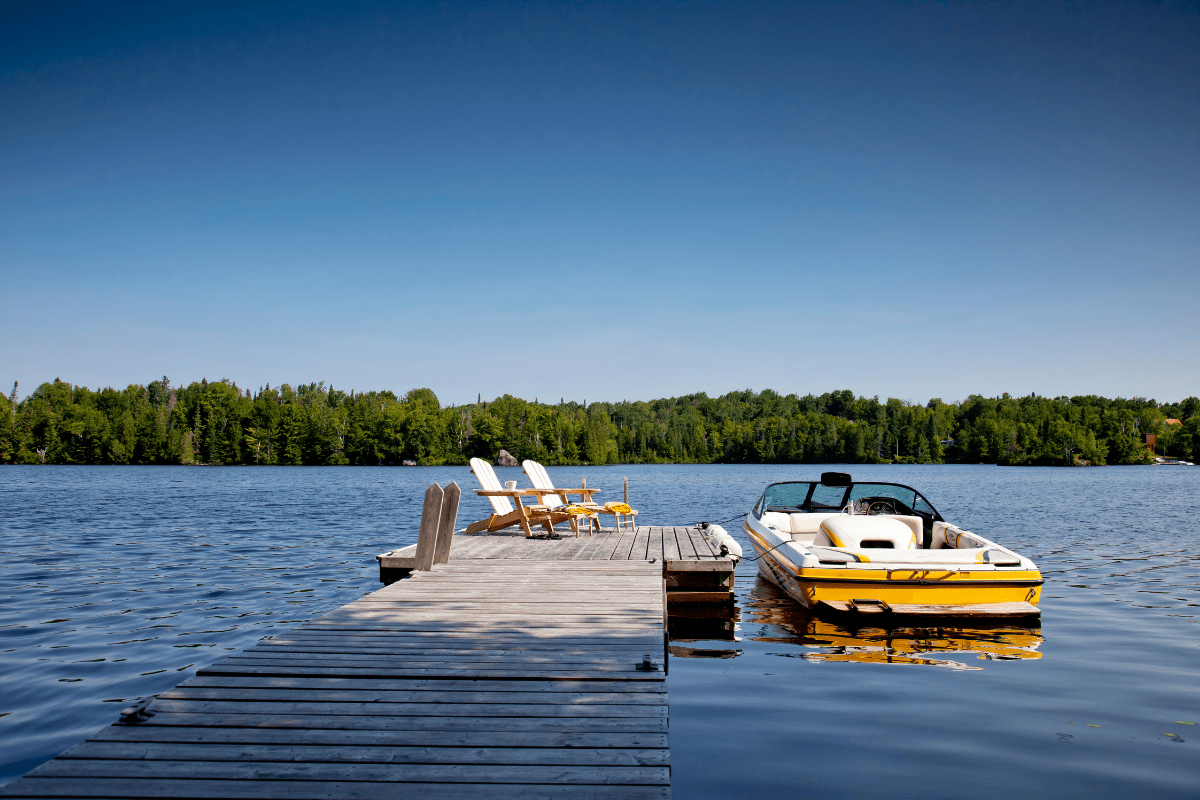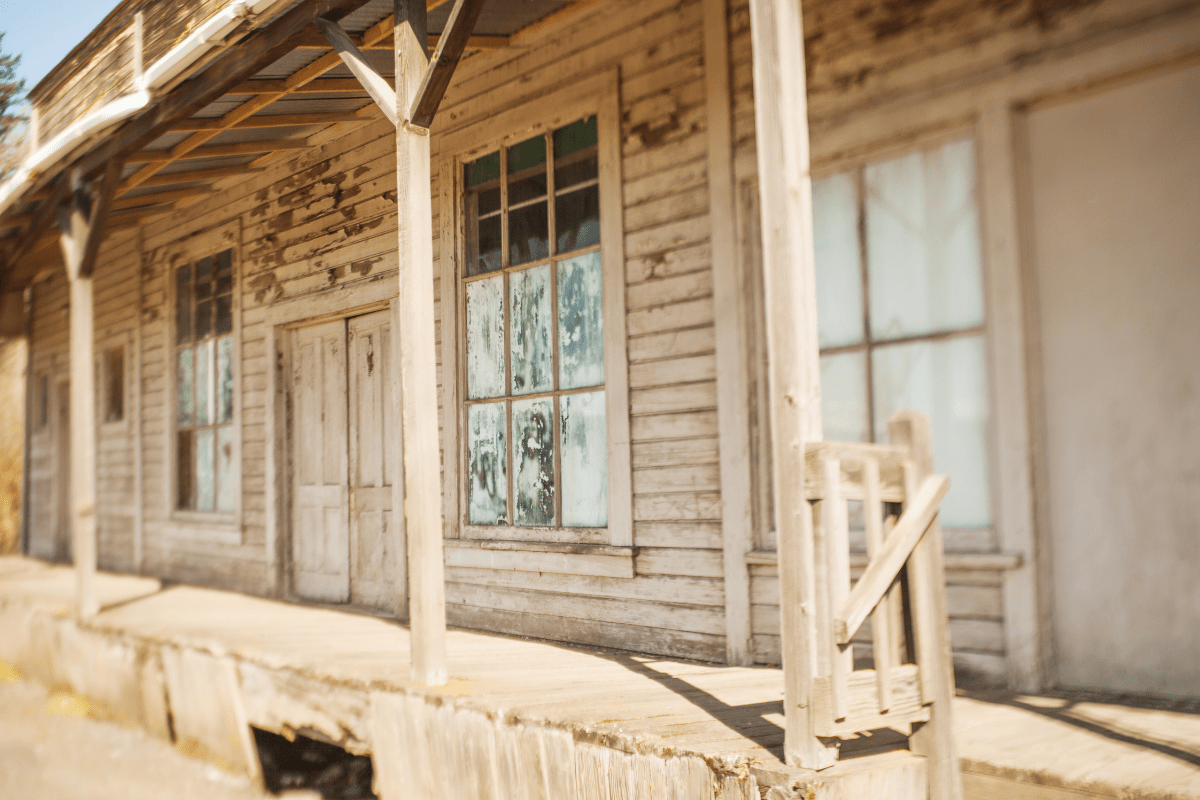Tennessee's lakes generate $12 billion annually while somehow managing to avoid the crowds you'd find at a Disney water park. With over 500,000 acres of water spread across the state, you've got better odds of finding your perfect fishing spot than finding a parking space at Trader Joe's on Sunday.
The big three lakes you can't miss
Before we dive into the entire buffet of Tennessee's aquatic offerings, let's talk about the headliners that make other states jealous.
Kentucky Lake leads the pack
At 160,300 acres, Kentucky Lake is basically the Costco of Tennessee lakes… massive, popular, and somehow has everything you need. Created by the TVA in 1944, this behemoth stretches across multiple counties with 2,064 miles of shoreline. That's enough shoreline to walk from Nashville to Los Angeles if you're into that sort of thing.
The lake hosts 5 million visitors annually who come for the legendary crappie fishing. Local anglers maintain private brush piles like they're tending secret gardens, except these gardens produce dinner. With 22 marinas and 77 public boat ramps, you'll find more access points than a poorly secured WiFi network. The lake connects to Lake Barkley via canal, forming the Land Between the Lakes National Recreation Area, which sounds like something from Lord of the Rings but with better boat rentals.
Norris Lake wins the clarity contest
Norris Lake is Tennessee's overachiever, maintaining water so clear you can see your poor life choices reflected back at you from 20 feet down. As the state's cleanest lake, this 34,200-acre gem was TVA's first major project, completed in 1936 when your grandparents were probably complaining about "kids these days."
The lake reaches depths of 210 feet and stays cooler than other area lakes, making it perfect for both swimming and that friend who always complains about the heat. With 809 miles of pristine shoreline and 21 marinas, Norris offers exceptional conditions for water sports and walleye fishing. The visibility here is so good that scuba divers actually come to explore underwater, though what they're looking for besides lost sunglasses remains a mystery.
Dale Hollow Lake breaks records
Dale Hollow Lake is the Muhammad Ali of smallmouth bass fishing, holding the world record of 11 pounds, 15 ounces caught in 1955. This 27,700-acre Army Corps reservoir also claims six of the top ten smallmouth bass ever recorded, making it the place where fish stories actually check out.
The lake's 620 miles of heavily wooded shoreline create perfect habitat for trophy fish, including walleye, muskie, and even rainbow and brown trout. Yes, trout in a Tennessee lake… nature's way of keeping things interesting. Dale Hollow's deep, clear waters have earned it the nickname "Smallmouth Capital of the World," which looks great on a tourism brochure but probably confuses the largemouth bass.
Planning your Tennessee lake adventure
Understanding when and how to visit these lakes can mean the difference between an epic trip and spending your weekend staring at a boat ramp that's 50 feet from the water.
Seasonal patterns that actually matter
TVA manages water levels like a very slow, very important video game. The annual drawdown begins August 1st, gradually lowering lakes through winter for flood control. Some lakes drop 50 feet or more, turning your favorite cove into a moonscape and making that lakefront restaurant more of a clifftop dining experience.
Here's what the seasons really look like:
- Spring (March-May): Fish are spawning and biting everything
- Summer (June-August): Peak crowds but perfect swimming weather
- Fall (September-November): Excellent fishing, fewer jet skis
- Winter (December-February): Solitude and surprisingly good fishing
Water temperatures drive everything from fish behavior to whether you'll need a wetsuit. Spring temperatures rising from the 50s to 70s trigger spawning season, making it the best time for fishing unless you're a fish, in which case it's quite stressful. Summer surface temps exceed 80°F, pushing fish deeper and making humans grateful for boat drinks. Fall turnover in late September temporarily makes the water look like chocolate milk, but the cooling temperatures reactivate fish feeding.
What it actually costs to play
Let's talk money, because "free" and "lake vacation" rarely appear in the same sentence. Fishing licenses cost $34 annually for residents, though they're jumping 28% in July 2025 because apparently fish are demanding higher wages. Non-residents pay $50, which is still cheaper than a decent dinner in Nashville.
Marina slip rentals run $200-500 monthly depending on whether you want "rustic charm" or "actually has electricity." Daily transient docking averages $25-50, and most major marinas maintain 24-hour fuel docks with ethanol-free options for boats that are pickier than your cousin's toddler.
State park camping offers the best deals:
- RV sites with full hookups: $30-75/night
- Primitive tent camping: Under $20/night
- Reservation window: Up to one year advance
- Cancellation policy: Varies by park
- WiFi availability: Don't count on it
Where the fish are (and how to catch them legally)
Tennessee's fishing economy generates $1.2 billion annually, proving that standing in water holding a stick with string attached is serious business.
Trophy destinations by species
Chickamauga Lake recently produced Tennessee's state record largemouth at 15.3 pounds, the kind of fish that makes grown adults cry tears of joy. The lake regularly hosts Bassmaster Elite Series events where pros compete for $175,000+ prize pools, catching five-fish limits that weigh more than most people's Thanksgiving turkeys.
Kentucky Lake remains the crappie capital, where locals guard their brush pile locations like state secrets. The key to success here involves either years of local knowledge or making friends with someone who has a good fish finder and loose lips.
The tailwater fisheries below TVA dams offer something completely different. The Caney Fork River below Center Hill Dam receives 220,000 stocked trout annually, maintaining a consistent 55°F that keeps trout happy and anglers in waders year-round. It's basically air conditioning for fish.
Following the rules without a law degree
Tennessee requires all anglers to have appropriate licenses, with kids under 13 fishing free when accompanied by a licensed adult who can explain why they're not catching anything either. Special regulations apply to specific waters:
- Cherokee Lake: 15 crappie daily, 10-inch minimum
- Various lakes: Protected slot limits for bass
- Trout waters: Special stamps required
- Tournament fishing: Additional permits needed
Anyone born after January 1, 1989, must complete boater education certification before operating watercraft. This ensures everyone knows that "port" means "left" and that beer doesn't count as a personal flotation device.
Hidden gems worth the extra drive
While everyone's fighting for parking at the major lakes, some of Tennessee's best waters hide in plain sight.
Reelfoot Lake stands alone
Reelfoot Lake is Tennessee's only major natural lake, created when the 1811-1812 New Madrid earthquakes made the Mississippi River flow backward. If that doesn't impress you, you're hard to please. This 15,000-acre shallow lake features a flooded cypress forest that looks like something from a fantasy movie, except with more mosquitoes.
The lake supports 270 bird species and hosts thousands of wintering bald eagles from December through February. Swimming is strictly prohibited due to underwater hazards, which is park-speak for "you will absolutely impale yourself on a cypress stump." The crappie fishing among the cypress trees is world-class, assuming you can navigate without destroying your prop.
Chilhowee Lake offers solitude
Located 40 miles south of Knoxville, Chilhowee Lake provides Tennessee's most remote lake experience across 1,747 acres. This narrow, 10-mile impoundment borders both Cherokee National Forest and Great Smoky Mountains National Park, making it the introvert's paradise.
The cool, clear waters support trout, walleye, and smallmouth bass, while three public boat ramps provide access for those willing to venture off the beaten path. Cell service is spotty at best, which is either a selling point or a dealbreaker depending on your relationship with email.
Pickett State Park's tiny treasure
Arch Lake encompasses just 12 acres but holds special distinction as part of the Southeast's first International Dark Sky Park. Built by the Civilian Conservation Corps, the lake features a dramatic sandstone arch overhead and excellent trout fishing accessed via suspension bridge that definitely doesn't swing unnervingly in the wind.
Staying safe without being paranoid
Tennessee's lakes are generally safe, but Mother Nature didn't childproof them for your convenience.
Wildlife that demands respect
Reelfoot Lake has confirmed alligators and widespread cottonmouth populations, making it the Australia of Tennessee lakes. The submerged cypress stumps throughout the lake make swimming about as safe as juggling chainsaws, which is why it's completely prohibited.
Eastern Tennessee lakes harbor copperheads and timber rattlesnakes along shorelines, with snake activity peaking during warm months when they're as eager to sunbathe as you are. The general rule: if it looks like a stick but moves like a noodle, give it space.
Boating requirements that actually matter
Tennessee enforces comprehensive boating safety regulations that include:
- Life jackets for kids 12 and under on deck
- Fire extinguishers for enclosed spaces
- Current registration ($24-60 by size)
- Throwable flotation for boats 16+ feet
- Working navigation lights after sunset
- A designated driver (seriously)
Weather monitoring proves essential as afternoon thunderstorms develop faster than your uncle's political opinions at Thanksgiving. TVA generation schedules can cause rapid water level changes below dams, so download their app unless you enjoy surprise white-water experiences in your pontoon boat.
Making it happen: Your action plan
The best Tennessee lake experience starts with realistic planning and ends with you boring your coworkers with fishing photos.
Booking essentials
State park campgrounds can be reserved online up to a year in advance, and popular summer weekends fill faster than a Nashville hot chicken joint at lunch. Marina slips for peak season should be booked by March, especially if you're picky about amenities like "electricity" and "not being next to the boat that plays music until 3 AM."
Boat rentals from marinas average $250-400 daily for pontoons that seat 8-12 people. Split among friends, that's cheaper than a round of drinks downtown and way more likely to result in actual memories.
The gear you actually need
Skip the fishing gear that promises to catch everything and focus on basics:
- Quality life jackets that people will actually wear
- Sunscreen (SPF 30+ minimum)
- Polarized sunglasses (for seeing fish)
- Cooler with actual ice
- First aid kit with bandaids
- Downloaded offline maps
- Cash for boat ramps
- Patience for boat ramp crowds
The bottom line on Tennessee lakes
Tennessee's lakes offer something increasingly rare: accessible adventure that doesn't require a trust fund or survival training. Whether you're chasing a world-record bass at Dale Hollow, teaching kids to fish at Percy Priest, or just floating on Kentucky Lake with a cooler full of optimism, these waters deliver experiences that explain why they generate billions in economic activity.
The combination of world-class fishing, comprehensive recreational infrastructure, and natural beauty creates opportunities for everyone from tournament pros to families who consider catching anything a victory. The key is picking your lake based on what you actually want to do, not what looks best on Instagram. Though honestly, they all look pretty good on Instagram.
Start with one of the big three if you're new to Tennessee lakes. Book your accommodations early, check the current regulations, and remember that the best fishing story is usually the one about the fish that got away. These half-million acres of water are waiting, and unlike that gym membership you bought in January, you'll actually use this.





